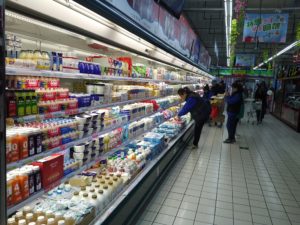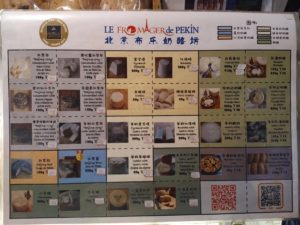25 years of DSHEA: NutraIngredient-USA’s appraisal
NutraIngredients-USA.com has posted a set of articles celebrating the 25th anniversary of the Dietary Supplement Health and Education Act of 1994 (DSHEA), which effectively deregulated the supplement industry. The articles that follow are from the perspective of that industry.
Personally, I’m not a fan of DSHEA, and view deregulation of dietary supplements as a mistake for the industry as well as for the public. Strong regulation inspires trust. Weak regulation encourages distrust of supplement products and the entire industry. When I see a Supplement Facts label, I have no reason to trust that the label reflects the contents of the package. Until supplements are subjected to the same level of regulation as food products, caveat emptor.
The Dietary Supplement Health and Education Act of 1994 created the framework for the modern supplement industry. In 1994, the industry was worth $4 bn. Now it is estimated to be worth over $40 bn.
In this special edition we will talk to some of the industry legends who helped to craft the law, we’ll learn about NPQAA, we’ll hear from the head of the FDA’s Office of Dietary Supplement Programs on the need to modernize the law, get the views of some of the industry association leaders, and look to the future.
- DSHEA at 25: In conversation with Scott Bass and Loren Israelsen: The brilliant strategy of Sen. Orrin Hatch, the upswell of grassroots consumer pressure, and the ‘highly unusual’ personal intervention of an FDA Commissioner: The development and passage of the Dietary Supplement Health and Education Act is a fascinating story….. Read
- What was NPQAA and what role did it play in the successful passage of DSHEA? While much of the focus around DSHEA was on Capitol Hill and the machinations of government, an important behind-the-scenes contribution came from the short lived Natural Products Quality Assurance Alliance. But what was NPQAA and how did it help?.. Watch now
- FDA’s Tave: ‘Opportunity to strengthen regulatory framework couldn’t come at a more pivotal time’: With scientific advances and the growth of the dietary supplements industry on one hand, and the proliferation of adulterated and misbranded products on the other, the opportunity to modernize DSHEA couldn’t come at a better time… Read
- DSHEA Was Not Carved in Stone: Want to spark controversy? Just suggest to some audiences that it’s time to amend DSHEA… Read
- Balancing consumer access and safety: Looking back 25 years, there are several remarkable aspects of the Dietary Supplement Health and Education Act (DSHEA) amendments to the Food Drug and Cosmetic Act (FD&C Act), which transformed how dietary supplements are regulated… Read
- Fabricant on DSHEA: ‘Why are we talking about modernizing something that has never been fully implemented?’ As talk in the industry and at the FDA continues around the modernization of DSHEA, not everyone thinks big changes are needed. “The best thing the Agency does is inspect and test,” says NPA’s Dr Daniel Fabricant… Watch now
- Critic says FDA’s slow enforcement makes ‘DSHEA 2.0’ a side issue: Industry critic Dr Pieter Cohen, MD, said FDA’s enforcement is overly deliberate, making any discussion about revisions to DSHEA more or less moot… Read
- Bodybuilding.com VP on DSHEA: What changes could improve the regulation of dietary supplements: Bodybuilding.com’s John Venardos shares some of his ideas to improve the regulation of the dietary supplements industry, from better transparency to greater FDA staff accountability, and how to level the playing field… Watch now
- If botanicals don’t fit easily under supplement heading, why not try to fix that? Should the creation of a new herbal medicine category be one of the goals of the upcoming discussions about a new regulatory framework? If it were possible, such a change could clear up many of the ambiguities surrounding the marketing of these products as dietary supplements… Read
- What should DSHEA 2.0 look like? Here are a couple of suggestions: On Monday FDA Commissioner Scott Gottlieb put forward some ideas about where the regulation of dietary supplements should go in the coming years. This is an opportunity that should not be missed. What should be tops on the industry’s wish list?.. Read





